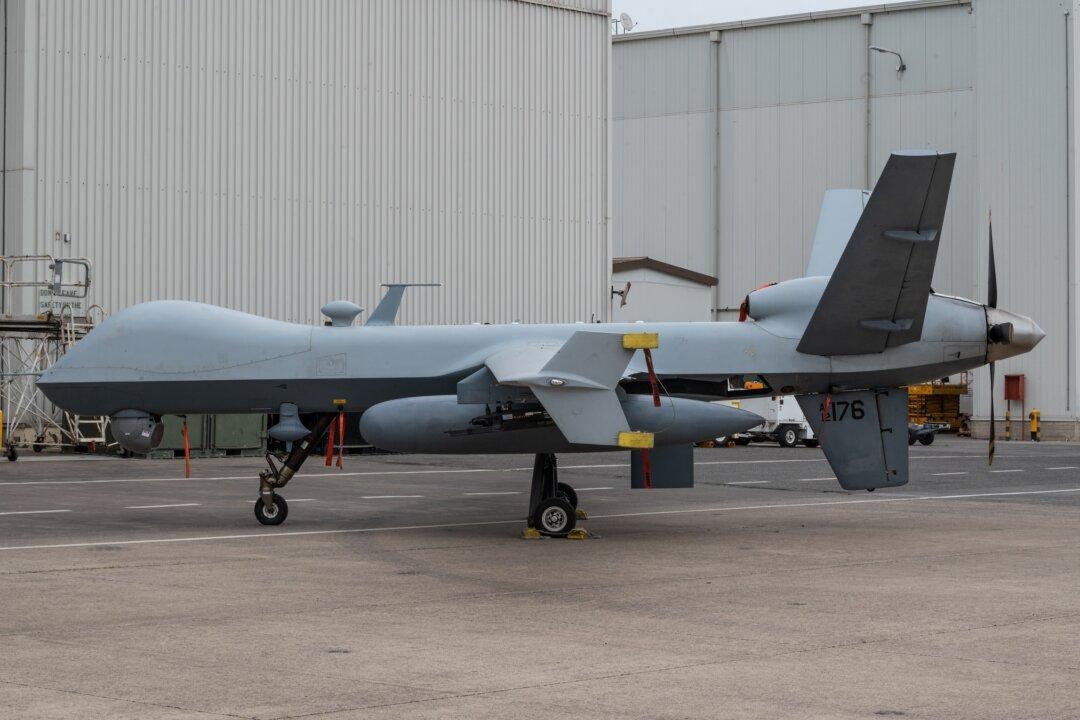An unmanned U.S. MQ-9 Reaper drone was downed off the coast of Yemen on Monday morning, U.S. defense officials confirmed to NTD News on Tuesday.
The Houthi rebel movement initially claimed responsibility for downing the U.S. unmanned aerial vehicle (UAV) on Monday, with Houthi spokesman Yahya Sare'e claiming on social media platform X that Houthi forces targeted the UAV with a “suitable missile” as it was carrying out “hostile missions” against Houthi-controlled areas of Yemen.





